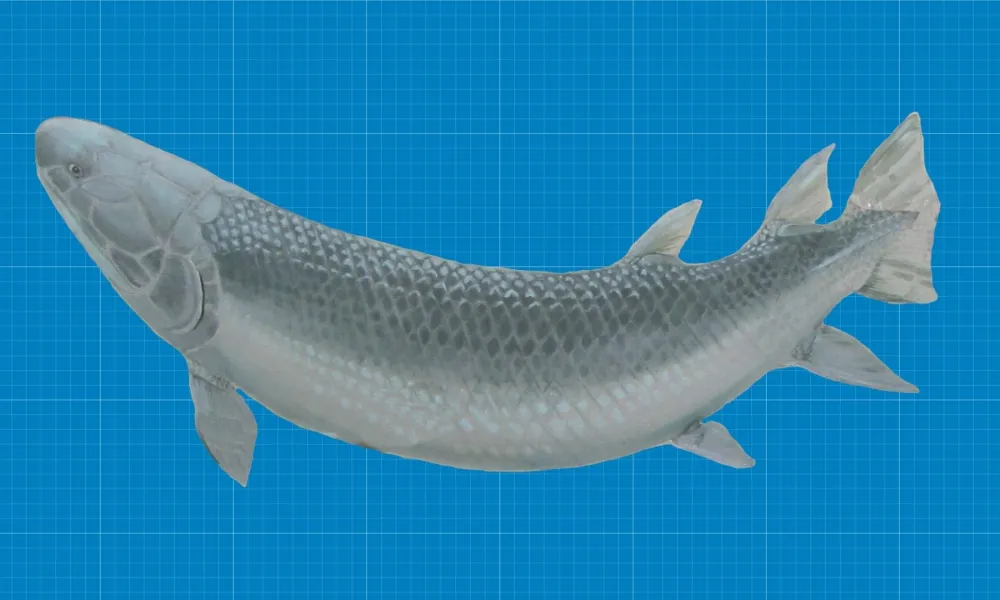News
Massive extinct fish fossil found in South Africa, new species named

The fossil of a species of fish that went extinct 350 million years ago was discovered this week under a roadway in Waterloo along the eastern coast of South Africa.
The fossil was found by researchers under a farm road in Waterloo after a decades-long search since the species was first discovered in 1995. Since then, the hunt for a full set of bones from the fish has eluded the researchers – until now. The massive prehistoric creature dates back to the Devonian period, a time during the Paleozoic Era, and belonged to the tristichopterid family.
Tristichopterids are large, bony fish that average about 8 feet long. Scientists believe the large fish would have been a predator that lurked in darkness and pounced upon prey passing by. Some researchers believe the timing may indicate the large fish at times feasted on the ancestors of humans, four-legged creatures called tetrapods that later evolved into modern day humans.
The discovery of the fossils at Waterloo Farm this month is the first indication that the fish lived in the fresh waters of the former supercontinent Gondwana, which predated Pangea. The fish was dubbed Hyneria udlezinye by researchers, translating from IsiXhosa to “one who consumes others.”
“Until recently there was one mysterious exception, Hyneria lindae, from North America. The discovery of a closely related species Hyneria udlezinye from southern Gondwana strongly supports the idea that these giants all originated in Gondwana. It represents an important missing piece of the puzzle,” said researcher and paleontologist Rob Gess to Newsweek. The fish is believed to have been the number one predator in the region at the time it existed.
Terry A. Hurlbut has been a student of politics, philosophy, and science for more than 35 years. He is a graduate of Yale College and has served as a physician-level laboratory administrator in a 250-bed community hospital. He also is a serious student of the Bible, is conversant in its two primary original languages, and has followed the creation-science movement closely since 1993.
-

 Executive5 days ago
Executive5 days agoWaste of the Day: Secret Settlements get Taxpayer Money
-

 Accountability2 days ago
Accountability2 days agoWaste of the Day: Principal Bought Lobster with School Funds
-

 Executive13 hours ago
Executive13 hours agoHow Relaxed COVID-Era Rules Fueled Minnesota’s Biggest Scam
-

 Constitution2 days ago
Constitution2 days agoTrump, Canada, and the Constitutional Problem Beneath the Bridge
-

 Civilization13 hours ago
Civilization13 hours agoThe End of Purple States and Competitive Districts
-

 Civilization4 days ago
Civilization4 days agoThe devil is in the details
-

 Executive4 days ago
Executive4 days agoTwo New Books Bash Covid Failures
-

 Civilization3 days ago
Civilization3 days agoThe Conundrum of President Donald J. Trump


